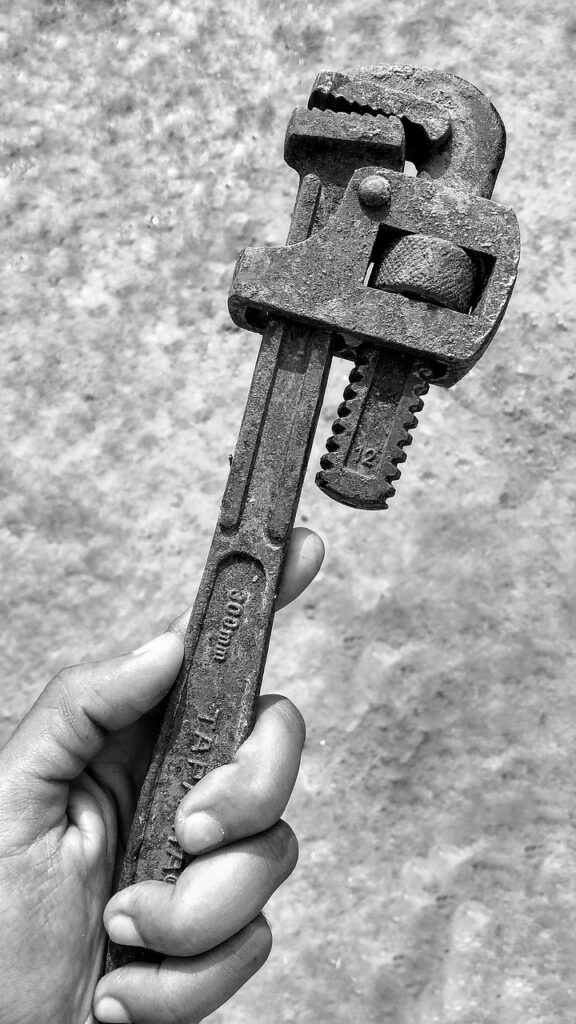Maintaining a functional and efficient plumbing system is crucial for the comfort, safety, and value of any home or commercial property. Regular plumbing maintenance not only prevents costly repairs and inconveniences but also ensures the longevity and optimal performance of your plumbing infrastructure. In this comprehensive guide, we’ll explore the importance of regular plumbing maintenance, essential tasks to include in your maintenance checklist, and how proactive maintenance can benefit homeowners and property managers alike.
Contents
- 0.0.1 1. Preventing Costly Repairs
- 0.0.2 2. Extending the Lifespan of Plumbing Fixtures and Appliances
- 0.0.3 3. Improving Water Efficiency
- 0.0.4 4. Ensuring Health and Safety
- 0.0.5 5. Compliance with Building Codes and Regulations
- 0.0.6 6. Creating a Maintenance Schedule
- 0.0.7 7. DIY Maintenance Tips
- 0.0.8 8. Hiring Professional Plumbing Services
- 0.0.9 9. Environmental Benefits
- 0.0.10 Conclusion
- 1 Author
1. Preventing Costly Repairs
Regular plumbing maintenance helps identify and address minor issues before they escalate into costly repairs. By detecting leaks, corrosion, or worn-out components early, homeowners can avoid:
- Water Damage: Leaking pipes or fixtures can cause water damage to walls, floors, and ceilings, leading to mold growth and structural issues.
- Pipe Replacement: Early detection of corrosion or leaks allows for timely repairs or replacements, preventing the need for extensive pipe replacement.
- Emergency Plumbing Services: Proactive maintenance reduces the likelihood of sudden plumbing emergencies that require urgent and often expensive repairs.
2. Extending the Lifespan of Plumbing Fixtures and Appliances
Proper maintenance extends the lifespan of plumbing fixtures, appliances, and pipes, reducing the frequency of replacements and upgrades. For example:
- Water Heaters: Regular flushing and maintenance of water heaters prevent sediment buildup, improving efficiency and longevity.
- Faucets and Fixtures: Cleaning aerators, replacing washers, and addressing leaks promptly prolongs the lifespan of faucets and showerheads.
- Pipes: Preventative measures such as insulating pipes in cold climates or addressing hard water issues can prevent premature deterioration and extend pipe lifespan.
3. Improving Water Efficiency
Regular maintenance includes inspecting and optimizing plumbing fixtures and systems for water efficiency. This not only conserves water but also reduces utility bills:
- Leak Detection: Detecting and repairing leaks promptly prevents water wastage and reduces water bills.
- Upgrading Fixtures: Installing low-flow faucets, showerheads, and toilets reduces water consumption without compromising performance.
- Water Pressure: Maintaining optimal water pressure prevents strain on plumbing pipes and fixtures, reducing the risk of leaks or bursts.
4. Ensuring Health and Safety
Maintaining a clean and sanitary plumbing system is essential for the health and safety of occupants:
- Preventing Contamination: Regularly inspecting and maintaining plumbing fixtures ensures that drinking water remains safe and free from contaminants.
- Reducing Mold and Mildew: Addressing leaks and moisture issues promptly prevents the growth of mold and mildew, which can affect indoor air quality and exacerbate allergies or respiratory problems.
- Ensuring Proper Drainage: Clearing clogs and maintaining drain lines prevents backups that can lead to unsanitary conditions and health hazards.
5. Compliance with Building Codes and Regulations
Regular plumbing maintenance helps property owners comply with local building codes and regulations:
- Inspections: Some jurisdictions require periodic inspections of plumbing systems to ensure compliance with safety and environmental standards.
- Permit Requirements: Major plumbing repairs or installations may require permits, which often necessitate compliance with specific codes and guidelines.
- Property Value: Maintaining a well-functioning plumbing system enhances property value and appeal to potential buyers or tenants who prioritize safety and reliability.
6. Creating a Maintenance Schedule
Creating a structured maintenance schedule ensures that essential tasks are performed regularly and systematically:
- Annual Inspections: Schedule annual inspections by a licensed plumber to assess the condition of pipes, fixtures, and appliances.
- Seasonal Checks: Conduct seasonal checks, such as winterizing outdoor plumbing or inspecting sump pumps before the rainy season.
- Routine Tasks: Include routine tasks like cleaning aerators, flushing water heaters, and checking for leaks in your maintenance schedule.
7. DIY Maintenance Tips
Homeowners can perform some maintenance tasks themselves to supplement professional inspections and services:
- Inspecting Visible Pipes: Regularly check exposed pipes for signs of leaks, corrosion, or damage.
- Cleaning Drains: Use drain strainers and periodically flush drains with hot water to prevent clogs.
- Testing Toilet Tanks: Check toilet tanks for leaks by adding food coloring to the tank; if color appears in the bowl without flushing, there may be a leak.
8. Hiring Professional Plumbing Services
While DIY maintenance is beneficial, certain tasks require the expertise and equipment of a professional plumber:
- Leak Detection: Professionals use advanced tools, such as leak detection cameras and pressure tests, to identify hidden leaks.
- Water Heater Maintenance: Flushing sediment from water heaters and inspecting components require technical knowledge and safety precautions.
- Emergency Repairs: In the event of a plumbing emergency, such as burst pipes or sewage backups, prompt professional assistance minimizes damage and ensures safety.
9. Environmental Benefits
Maintaining a well-functioning plumbing system contributes to environmental sustainability:
- Water Conservation: Preventing leaks and optimizing water use reduce water consumption and preserve local water resources.
- Energy Efficiency: Efficient water heaters and plumbing fixtures reduce energy consumption and lower greenhouse gas emissions associated with heating water.
Conclusion
Regular plumbing maintenance is essential for preserving the integrity, efficiency, and safety of your plumbing system. By preventing costly repairs, extending the lifespan of fixtures and appliances, improving water efficiency, ensuring health and safety, and complying with regulations, homeowners and property managers can protect their investment and enhance the comfort of occupants. Whether through DIY maintenance tasks or professional plumbing services, proactive care of your plumbing system ensures peace of mind and long-term satisfaction with your home or commercial property. Prioritize regular plumbing maintenance to enjoy reliable performance and avoid unexpected plumbing issues down the road.










